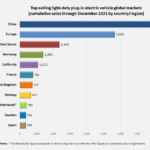Is going alcohol-free for a month really worth it?
- Dry January can be beneficial for those looking to cut back on their drinking
- It can lead to short-term benefits like weight loss and improved sleep
- However, it may not result in long-term change and can potentially lead to overindulgence in February
- For those with a serious drinking problem, going cold turkey without medical supervision can be dangerous
- Underlying mental health issues should be addressed alongside alcohol abstinence
- Non-alcoholic beverage options often don’t match the flavor of the real deal
- Giving up alcohol doesn’t have to be limited to January or a month-long commitment
- There are other ways to cut back on alcohol consumption that may be more effective
Dry January, the challenge of abstaining from alcohol for the first month of the year, has gained popularity in recent years. While it can be beneficial for those looking to cut back on their drinking, there are limitations and risks to consider. For individuals with a serious drinking problem, going cold turkey without medical supervision can be dangerous due to potential withdrawal symptoms. Additionally, addressing underlying mental health issues is crucial, as alcohol is often used as a form of self-medication. While Dry January may lead to short-term benefits like weight loss and improved sleep, it may not result in long-term change and can potentially lead to overindulgence in February. Furthermore, the availability and taste of non-alcoholic beverage options may not match the real deal. It’s important to remember that giving up alcohol doesn’t have to be limited to January or a month-long commitment. There are other ways to cut back on alcohol consumption that may be more effective, such as reducing the amount consumed in a single setting or the number of days drinking in a week. Ultimately, the decision to participate in Dry January should be based on individual goals and considerations.
Public Companies:
Private Companies: undefined, undefined, undefined, undefined, undefined
Key People: Cheryl Brown Merriwether (Executive Director of the International Center for Addiction and Recovery Education (ICARE)), Lisa Ferguson (Recovering alcoholic and member of Right Path House), Francine Cohen (Food-and-beverage industry consultant), Kevin Brady (Vice President of Mark Anthony Brands Inc.), Donald Hensrud (Mayo Clinic physician and associate professor of nutrition and preventive medicine), Peter Vernig (Vice President of Mental-Health Services at the Recovery Centers of America)
Factuality Level: 7
Justification: The article provides some factual information about the prevalence of alcohol consumption in the US and the potential risks and benefits of participating in Dry January. However, it also includes some personal opinions and subjective statements that may not be universally accepted as truth.
Noise Level: 4
Justification: The article provides some useful information about the potential risks and limitations of Dry January, but it also includes some irrelevant and repetitive content. It does not provide a thoughtful analysis of long-term trends or antifragility. It does not hold powerful people accountable or explore the consequences of decisions. The article lacks scientific rigor and intellectual honesty as it relies mostly on personal opinions and anecdotes. It stays on topic but does not provide strong evidence or actionable insights.
Financial Relevance: No
Financial Markets Impacted: No
Presence of Extreme Event: No
Nature of Extreme Event: No
Impact Rating of the Extreme Event: No
Justification: The article does not pertain to financial topics and does not describe any extreme events. It discusses the concept of Dry January and its limitations and risks in terms of alcohol consumption and health. It does not provide information that would impact financial markets or companies.
 www.marketwatch.com
www.marketwatch.com 





